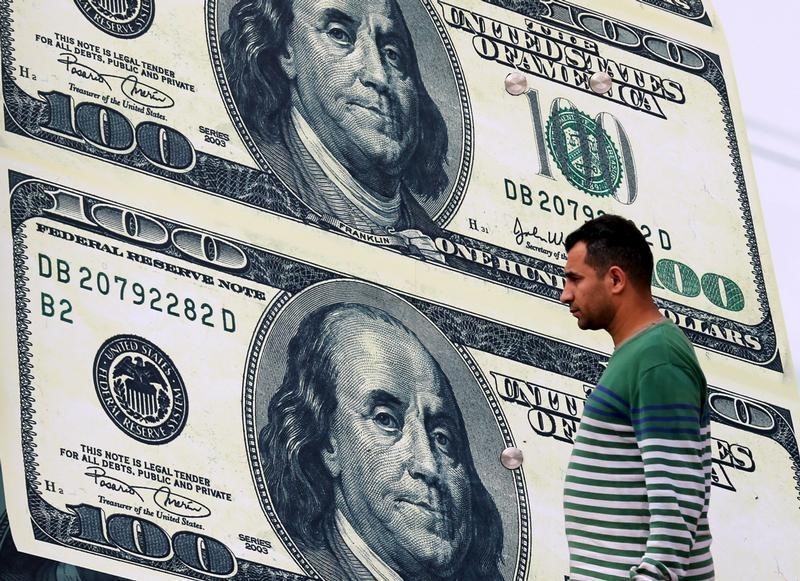
At 04:00 ET (09:00 GMT), the Dollar Index, which tracks the greenback against a basket of six other currencies, traded 0.1% higher to 101.314, after having climbed to its highest level since Aug. 22 at 101.58 on Thursday.
The dollar is on course for a 0.6% gain this week, which would be its best week since the start of April, helped by persistent signs of U.S. economic resilience, after gross domestic product data showed the economy grew more than initially estimated in the second quarter.
However, the U.S. currency is still set for a drop of about 2.5% in August, which would be its worst month since November, as traders factored in the Federal Reserve starting a rate-cutting cycle.
Speaking at the Fed’s annual Jackson Hole symposium last week, Fed Chair Jerome Powell acknowledged recent progress on inflation and said that “the time has come for policy to adjust.”
This has been taken by the markets as all but guaranteeing a rate cut at next month’s policy meeting, which would be the first such cut in over four years.
However, there remains debate over the size of the cut as well as the pace of future cuts.
The Personal Consumption Expenditures price index, the Federal Reserve’s preferred inflation yardstick, is due later in the session, and could offer more information to that debate.
In Europe, EUR/USD traded 0.1% higher to 1.1092, after the August eurozone consumer inflation release confirmed signs of slowing inflation.
Eurozone CPI rose 2.2% on an annual basis in August, a drop from 2.6% the prior month, and a monthly gain of 0.2%.
The European Central Bank started cutting interest rates in June, and a sharp drop in inflation is likely to prompt policymakers to cut once more next month.
GBP/USD gained 0.2% to 1.3188, close to its strongest level since March 2022, boosted by expectations that the Bank of England will keep interest rates high for longer than in the United States and the eurozone.
The BoE cut rates by 25 basis points on Aug. 1 to 5% and money markets price in a further 40 bps of cuts by year-end.
In Asia, USD/JPY steadied at 145.01, close to lows hit in early-August, during the peak of the pro-yen trade.
Consumer price index data from Tokyo showed inflation grew slightly more than expected in August, with core inflation moving back towards the Bank of Japan’s 2% annual target amid improving private spending.
The reading furthered the notion that increasing inflation will give the BOJ more headroom to hike interest rates more this year. The CPI reading also helped markets look past disappointing industrial production and retail sales prints.
USD/CNY traded 0.1% lower to 7.0907, falling to its lowest level since late-December.
The yuan, along with broader Chinese markets, was supported by news that Beijing planned to refinance $5.4 trillion of mortgages – providing a shot in the arm for the property market, which is at the heart of China’s economic downturn.
To read the full article, Click Here
